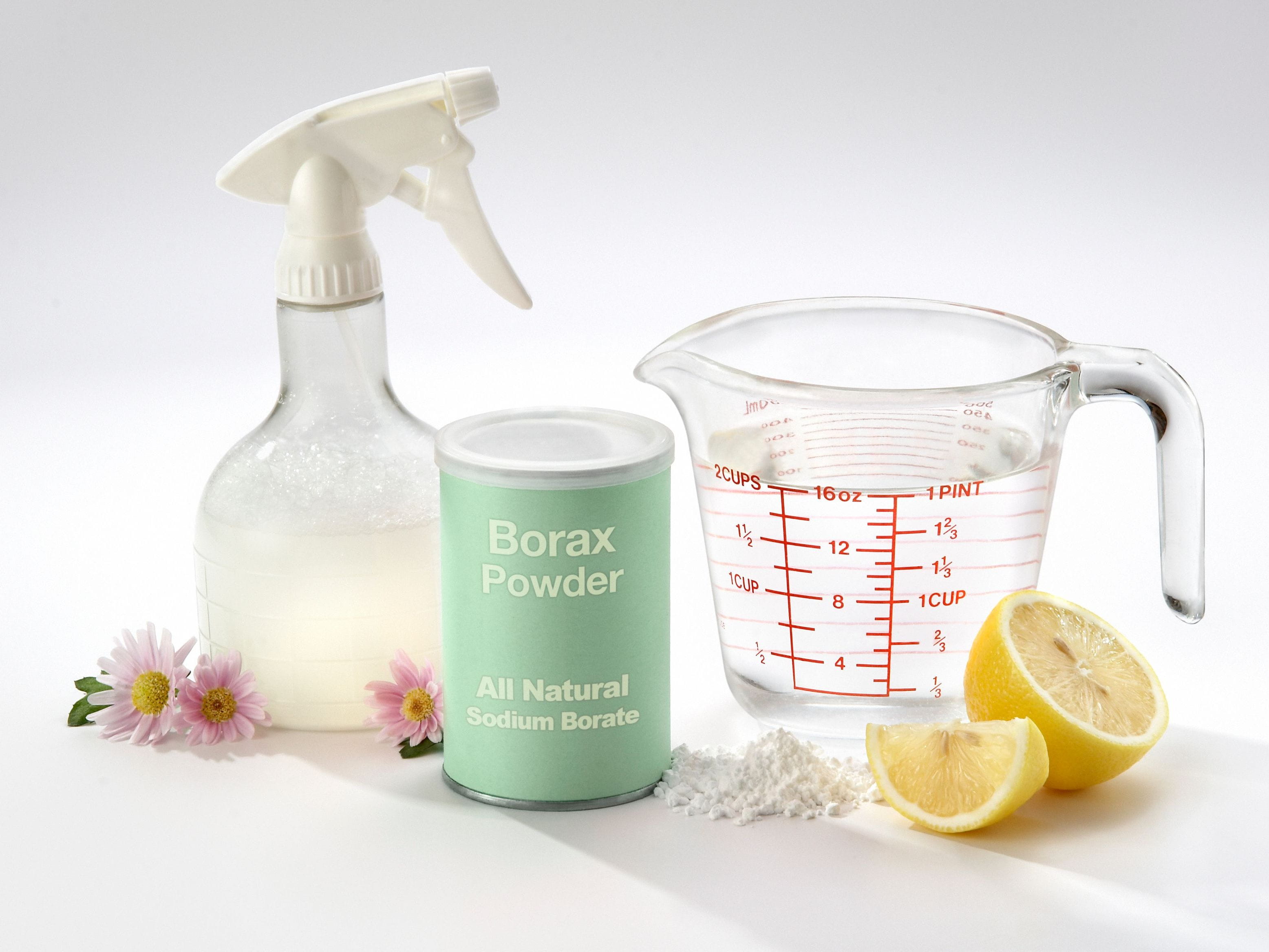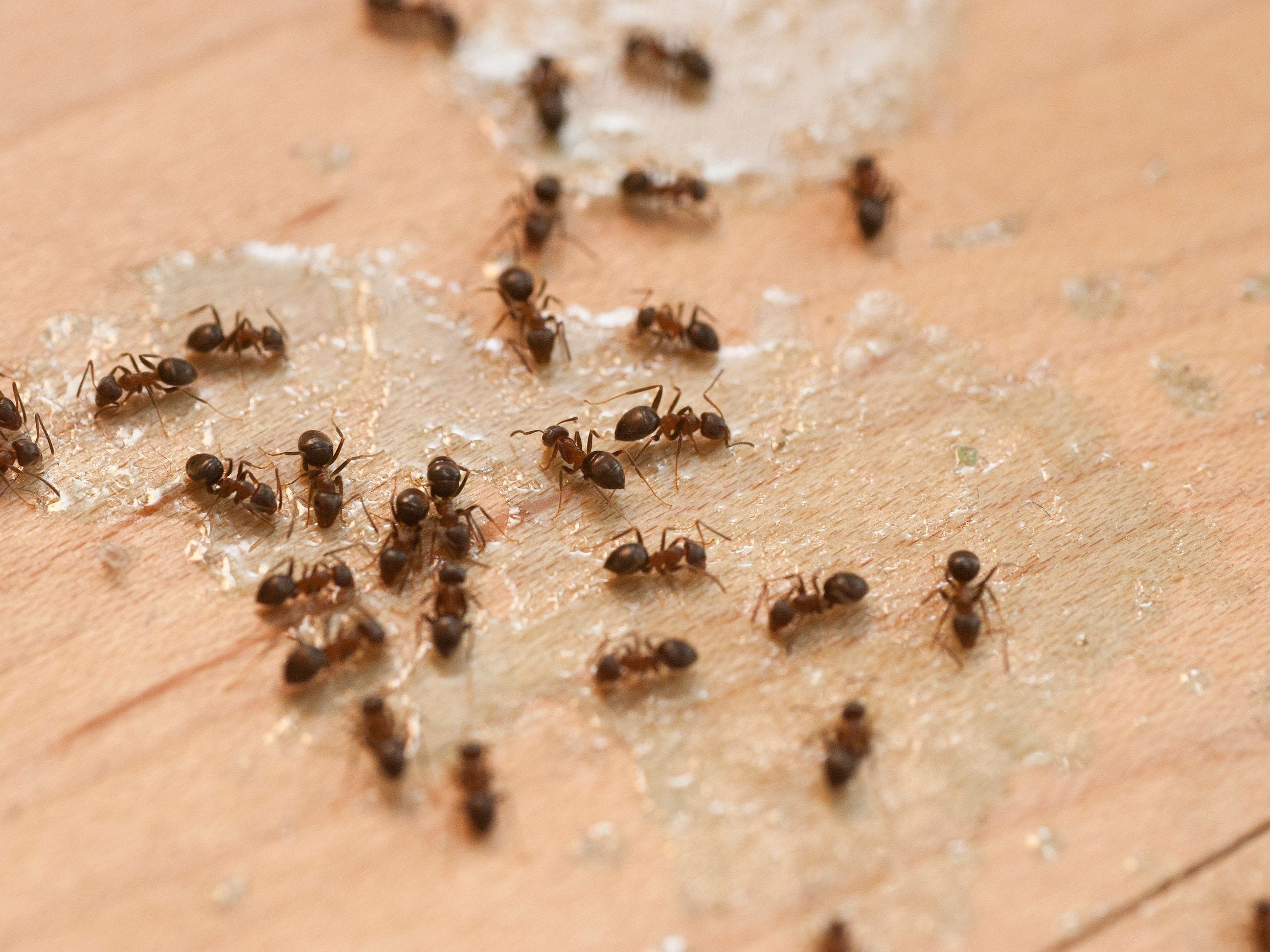Borates, Borax, and Boric Acid: Are They Safe?

The Bottom Line
Borates are naturally occurring compounds with a wide variety of uses, including in cleaning products, insecticides, and solutions for skin and eyes. Borates can come in a variety of forms, most commonly boric acid and borax. Follow product instructions when using borates. If someone ingests a borate, seek immediate medical attention.

Borates, boric acid, and borax: What’s the difference?
Borates are compounds made from oxygen and boron, a naturally occurring element found in oceans, rocks, coal, soil, and certain types of plants. When boron combines with oxygen and other elements, it forms borates. Borates are incredibly versatile and have a wide range of applications due to their unique properties.
Boric acid is a type of borate commonly used as an insecticide, especially for cockroaches, termites, ants, and fleas. It is popular because it is less toxic to humans and pets compared to more potent chemical pesticides. Boric acid is also used as a remedy for fungal and yeast infections, especially in the form of over-the-counter vaginal suppositories, and is found in commercially available eye wash products. These health and personal care products contain a low concentration of boric acid and are safe to use according to the instructions on the packaging.
Borax, also known as sodium borate, is a naturally occurring mineral used in a range of products, from household cleaners and laundry detergents to ant and roach killers. It also gained popularity as a component in homemade slime recipes, which caused some concern due to potential health risks if it was mishandled or ingested.
Is boric acid safe to use in the home?
Health and personal care products containing a low concentration of boric acid are safe to use according to the instructions on the packaging. However, do not attempt to use industrial grade products intended for pest control or other household applications on the human body. Improper use of these more concentrated products may cause poisoning.
While boric acid can be used safely in the home for certain purposes, it should be handled carefully, and it’s crucial to follow all safety instructions and precautions listed on the product. If you’re uncertain about whether it’s safe to use boric acid in the home, consulting a professional or local poison control center is always a good idea.
Was borax banned? Why?
Borax is not banned in the US. However, the EPA classifies it as a “moderate” acute toxicity substance, meaning it can cause harm in higher doses or prolonged exposure, especially if it is ingested or comes into contact with eyes.
In the European Union, borax has a more severe classification. In December 2010, borax was added to the Substance of Very High Concern list for its reproductive toxicity. In other words, the European Chemicals Agency recognized that high levels of exposure to borax may adversely affect human reproduction or development. As a result, some products containing borax are banned for sale within the European Union unless they meet certain safety requirements.
As always, products containing borax or any other potentially harmful substances should be used as directed and kept out of the reach of children and pets. Consult relevant local or national regulatory authorities for the most updated information on regulations in your country.
Is boric acid poisonous?
Boric acid, while relatively less toxic than many synthetic chemicals, should still be handled carefully. It can become poisonous under the following circumstances:
- Ingestion: If swallowed in significant quantities, boric acid can be toxic and cause symptoms such as nausea, vomiting, abdominal pain, diarrhea, and in more severe cases, kidney damage and seizures. It is particularly hazardous if ingested by children or pets.
- Inhalation: Inhalation of boric acid dust can lead to respiratory irritation and coughing.
- Skin and Eye Exposure: Boric acid can cause irritation to the skin and eyes. Prolonged contact may lead to burns or more serious damage. In some cases, boric acid eye washes are used for treating eye infections, but this should always be done under medical supervision.
- Chronic Exposure: While boric acid is less toxic in small quantities, chronic exposure over a long time can increase the risk of certain health issues. The EPA states that long-term exposure to boric acid can potentially cause damage to the testes, endocrine system, and a developing fetus. Therefore, pregnant women and individuals with kidney disease or other similar conditions should avoid exposure to boric acid.
In general, it’s important to always handle boric acid with care, to store it out of the reach of children and pets, and to use it for its intended purposes only. Be sure to use gloves, goggles, and a mask and ensure adequate ventilation when handling boric acid.
What should I do if I ingest a borate such as boric acid or borax?
If someone swallows a borate compound, they should take a few sips of water. If the product is inhaled, move to fresh air. If a borate compound gets in the eyes, rinse the eyes with room temperature water for at least 15 minutes. If a borate compound gets on the skin, wash the area with soap and water. Seek help by calling 1-800-222-1222 or using the webPOISONCONTROL online tool. Poison Control’s expert guidance is always free, confidential, and available 24 hours a day.
Quynh-Anh Pham, PharmD, SPI
Pharmacist, Specialist in Poison InformationPoison Control Media Information
Did you find this page helpful? If so, we need your support. Poison Control is in constant competition with misinformation online. Links to www.poison.org or our webPOISONCONTROL triage tool from other websites and blogs help internet searchers quickly find accurate information and Poison Control’s contact information in an emergency. If you use the content from this page, please provide attribution via a link back to this page, www.poison.org, or https://triage.webpoisoncontrol.org/#!/exclusions. By doing so, you could save a life. Thank you!
Poisoned?
Call 1-800-222-1222 or
Prevention Tips
- Always use boric acid as directed by the manufacturer. Don’t use it for purposes other than those indicated on the product packaging unless advised by a healthcare or pest control professional.
- If you’re handling boric acid, especially in a powdered form, wear protective gear. This can include gloves, eye protection and possibly a mask to avoid inhaling the powder.
- Store boric acid out of the reach of children and pets. Make sure the container is sealed properly to avoid spills and contamination.
- Do not ingest boric acid or inhale the powder. If you accidentally ingest or inhale it, seek medical attention.
- Always wash your hands thoroughly after handling boric acid.
- If you’re using boric acid in a confined space, ensure the area is well-ventilated to prevent inhalation of any airborne particles
- Boric acid can react with other substances. Make sure to follow the manufacturer’s guidelines regarding what substances it can safely come in contact with.
- Dispose of boric acid carefully in accordance with your local waste disposal regulations.
This Really Happened
A 10-month-old girl ingested a taste amount of Terro Liquid Ant Bait. The mother called Poison Control and was advised to gently wipe out the mouth and give the child some fluids to drink. The child did not develop any symptoms.
A 22-year-old woman accidentally swallowed her boric acid vaginal suppository, mistaking it for a pill. She called Poison Control and was advised to have a snack and drink some fluids. She did not develop any symptoms.
A 20-year-old woman misunderstood the instructions on the package and she ingested 1 boric acid vaginal suppository per day for 25 days. She felt ill with lethargy and abdominal pain. Poison Control recommended a medical evaluation. She was seen in an urgent care facility and her kidney function was checked and found to be normal. She stopped using the suppositories and felt better within a few days.
A 20-month-old boy was found playing with the ready-to-use insecticide powder containing 99% boric acid. He developed burns and blisters where the product had come into contact with his skin. He was taken to the Emergency Department where his skin was washed thoroughly and his burns were evaluated and treated. Over the next 2 days, the child’s skin began to slough off in the affected areas. The child recovered in about 1 week.
For More Information
References
Boric acid. Wikipedia. Cited March 20, 2023. https://en.wikipedia.org/wiki/Boric_acid.
Poisoned?
Call 1-800-222-1222 or
Prevention Tips
- Always use boric acid as directed by the manufacturer. Don’t use it for purposes other than those indicated on the product packaging unless advised by a healthcare or pest control professional.
- If you’re handling boric acid, especially in a powdered form, wear protective gear. This can include gloves, eye protection and possibly a mask to avoid inhaling the powder.
- Store boric acid out of the reach of children and pets. Make sure the container is sealed properly to avoid spills and contamination.
- Do not ingest boric acid or inhale the powder. If you accidentally ingest or inhale it, seek medical attention.
- Always wash your hands thoroughly after handling boric acid.
- If you’re using boric acid in a confined space, ensure the area is well-ventilated to prevent inhalation of any airborne particles
- Boric acid can react with other substances. Make sure to follow the manufacturer’s guidelines regarding what substances it can safely come in contact with.
- Dispose of boric acid carefully in accordance with your local waste disposal regulations.
This Really Happened
A 10-month-old girl ingested a taste amount of Terro Liquid Ant Bait. The mother called Poison Control and was advised to gently wipe out the mouth and give the child some fluids to drink. The child did not develop any symptoms.
A 22-year-old woman accidentally swallowed her boric acid vaginal suppository, mistaking it for a pill. She called Poison Control and was advised to have a snack and drink some fluids. She did not develop any symptoms.
A 20-year-old woman misunderstood the instructions on the package and she ingested 1 boric acid vaginal suppository per day for 25 days. She felt ill with lethargy and abdominal pain. Poison Control recommended a medical evaluation. She was seen in an urgent care facility and her kidney function was checked and found to be normal. She stopped using the suppositories and felt better within a few days.
A 20-month-old boy was found playing with the ready-to-use insecticide powder containing 99% boric acid. He developed burns and blisters where the product had come into contact with his skin. He was taken to the Emergency Department where his skin was washed thoroughly and his burns were evaluated and treated. Over the next 2 days, the child’s skin began to slough off in the affected areas. The child recovered in about 1 week.
